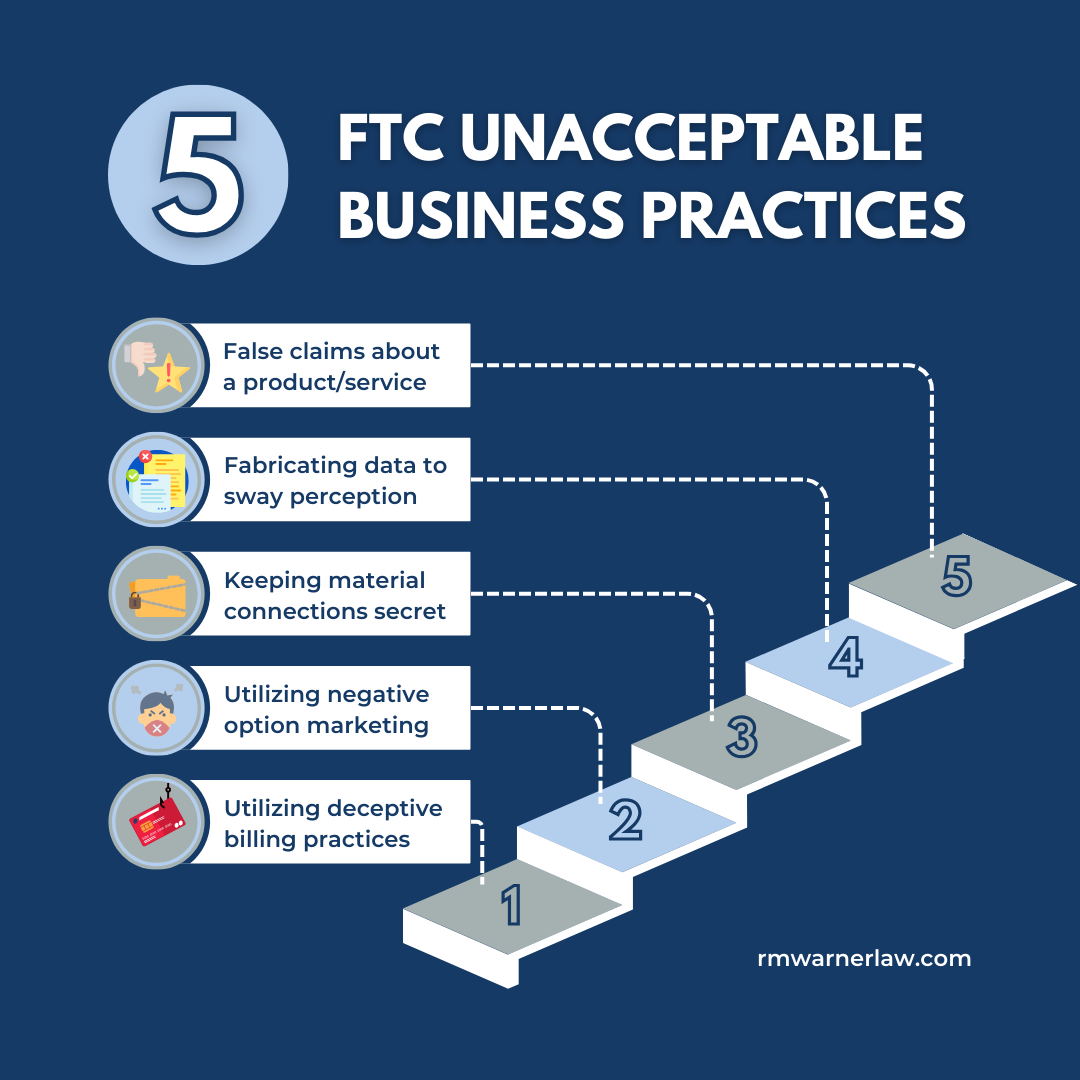Your Guide To E-Commerce Law
Your Guide To E-Commerce Law

What is E-Commerce Law?
E-commerce, also known as electronic commerce, is the online industry of buying and selling goods, products, or services via the Internet. E-commerce law encompasses all the legalities associated with the e-commerce industry. Each type of e-commerce company is required to abide by certain laws and regulations. These laws are numerous, and can be complex which is why having an experienced e-commerce lawyer on your team is essential. Not only will an e-commerce attorney help you if you run into legal issues, they’ll also help you stay in compliance.What Types of Businesses are Considered E-Commerce Companies?
Companies like Amazon and eBay that host millions of merchants and individual businesses selling physical goods are considered e-commerce platforms. Service-based retailers, also known as e-tailers, like Uber and Postmates are considered e-commerce businesses. Companies like Shutterstock or Skype are also considered e-commerce businesses because they provide digital products via the Internet like stock photos or messaging mediums. Even businesses who sell goods off of Instagram or other social media platforms are considered to be a part of the e-commerce industry. In a nutshell, understanding e-commerce legal issues applies to everyone operating in the internet marketspace. This includes, esports teams and players, social media influencers, product sellers on Amazon or on other platforms, bloggers, podcasters, internet marketers, and so on.What are the Most Common Legal Issues in E-Commerce Law?
- Establishing a proper business entity to protect you from personal liability
- Creating proper business agreements to protect your business interests with partners and affiliates
- Drafting proper online terms of use and privacy policies
- Drafting proper licensing agreements
- How to remove or address false reviews and defamatory statements made about your business
- Unfair competition issues
- Avoiding fake reviews
- Counterfeit products and avoiding attacks on your re-sale business
- Issues with FTC Compliance, including avoiding deceptive marketing practices
- How to protect and control your intellectual property rights online
- Protecting your personal and business brand online
- How to address medical and health claims in marketing materials for FDA and DSHEA compliance
- Payment processing issues, chargebacks, and holdbacks with processors and Amazon
- Account suspensions
- Advertising practices
Why is it Important to Have Representation When Dealing With Matters of E-Commerce Law?
It is important to seek assistance from qualified counsel in e-commerce legal matters because you want to ensure that your company is protected online. If you are an online marketer, you want to ensure you are compliant with the policies of the Federal Trade Commission, and the Food and Drug Administration, for example. But there are many legal issues that can arise while forming an e-commerce site or working with an e-commerce platform like Amazon. After your business is formed, you might run into issues with unfair competition, such as a competitor producing fake reviews about your company, disparaging your reputation, or issues with intellectual property if your products or business model were to be copied by someone else, or if you are streaming someone else’s content without their consent. Having an experienced law firm on your side will help protect you and your business from a myriad of legal problems.What Services Does an E-Commerce Law Attorney Provide?
- Advice on e-commerce business ventures
- Structure business entities for online retailers, and web-based businesses
- Generate E-Commerce Terms and Conditions, Privacy Policies, Refund Policies, etc.
- Perform FDA, DSHEA, and FTC compliance reviews for e-commerce businesses
- Advocate on behalf of companies under FTC or Attorney General Investigation
- Help resolve account suspensions for Amazon Sellers
- Assists with payment processing problems
- Resolve review and counterfeit issues
- Remove false and defamatory statements online and on social media websites
- Trademark and Copyright Infringement Issues
- Intellectual Property issues
- Fulfilled by Amazon (FBA) issues
What Does Unfair Competition Look Like for E-Commerce Companies?
How Does Internet Defamation Affect E-Commerce Companies?
Internet Defamation occurs when a false statement of fact is published or broadcasted online that causes damage to a company or person’s reputation that harms their business in return. This can also be considered trade libel. E-commerce companies can fall victim to defamation through online reviews of the company or product or articles in the media that contain false, negative and defamatory statements about a company. Defamation can occur when your competitors seek to damage your business or angry customers have fabricated the truth about their experience with a product or company out of rage. Internet defamation attorneys can help remove defamatory statements from online platforms and seek compensation for the damages by suing for defamation.How Does Product Disparagement Affect E-Commerce Businesses?
Product Disparagement is another form of defamation and occurs when advertisers make a false or misleading product comparison or false statement of fact about a product that damages the company that produces the product. Internet attorneys can seek justice for companies fallen victim to product disparagement by suing under state product disparagement laws, state defamation laws as well as the federal Lanham Act that protects trademarks.What is the Lanham Act?
The Lanham Act is the primary federal trademark law in the U.S. and covers registration, infringement, false advertising and dilution. Section 43(a) of the Lanham Act addresses claims for unregistered trademark infringement, which is often referred to as “common law trademark infringement”. The Lanham Act also provides remedies for false advertising or “commercial disparagement”, product disparagement, and trade libel. The Lanham Act also addresses a claim for false designation of origin, which can include “passing off” and “reverse passing off”. False endorsements are also addressed in the Lanham Act. Over the years, the law has been amended to include trademark counterfeiting and cybersquatting. As with any well-worn federal statute, the Lanham Act is full of nuances and exceptions, but below you can find the basics.A Mark Cannot be Registered as a Trademark Registration if it is:
- Confusingly similar to another trademark
- Generic or merely descriptive of the goods or services it represents
- Scandalous or immoral
- It is generally illegal to use the trademark of another for profit without authorization
- It is illegal to import products that infringe or dilute a registered U.S. trademark
- The owner of a trademark automatically has rights to any related domain names
- It is illegal to falsely or misleadingly describe a product or its origins in order to cause marketplace confusion
Is it Possible to Remove Negative Reviews from the Internet?
A review cannot be removed just because it is negative unless the author chooses to remove it themselves. A negative but truthful review is not defamation. If the review is false and damages the reputation of your company or product, it is possible to sue for defamation or trade libel. The Federal Trade Commission has a zero-tolerance policy on fake reviews. The FTC considers fake reviews a clear case of unfair and deceptive marketing.How Do I Know if a Review is Fake?
You might not always be able to tell if a review is posted by an actual customer or someone seeking to damage your company. However, you may be able to identify them by some of these red flags:- The reviewer has no other review listed
- The reviewer does not describe the product or service with specific details
- The review is vague
- The review is over the top and has a wide use of superlatives
- The review emphasis first-person pronouns like “I” and “We”
- The review provides a link to another product as a “superior alternative”
Who is Writing Fake Reviews About My Business?
- Paid reviewers
- Competitors
- Marketers
- Content Writers
- “Brushers” that place fake orders to inflate sales
What Legal Issues Can I Run into When Marketing My E-Commerce Business?
Are There Regulations for Marketing on Social Media?
Yes, the same regulations that apply to online advertising also apply to social media. Nowadays, it is common practice to advertise through a social media influencer. It is important for the business and the influencer to always disclose when a post, whether it be a photo, video, or story, is paid for or sponsored by a business with hashtags like #ad, #paidpromotion, #paidpartnership, etc. This is also included in the FTC’s dot com disclosures.How Do I Protect the Interests of My E-Commerce Company?
Terms and Conditions
There are many ways that an e-commerce lawyer can help you protect your e-commerce company. Creating a clear outline of your company’s terms and conditions can help your business stay protected when selling online. Standard Terms and Conditions for e-commerce businesses consist of:- Information Compliant with the latest Consumer Contract Regulations: This information includes contact details, clarification of your business identity, the products you sell, and how you can be contacted by your customers.
- Liability Limitations: In order to keep your legal costs at a minimum in case you were to be sued by a customer, it’s important to have a limited liability clause to limit any claims that may arise. Some claims to liability like causing death or personal injury cannot be contracted away from but other claims like damage can be.
- Return Policy: Specifying what happens with returns and who pays for returns is important to include in your terms and conditions as returns are a common occurrence with an online business.
- Jurisdiction/ Choice of Law: This establishes the laws that the contract of sale will be interpreted by. This is important especially for an ecommerce business because if you were to sell around the world, you need to establish what legal jurisdiction your company abides by.
- Delivery Terms: This will protect your company from responsibility for delivery issues. Having a clear outline in place that customers are required to accept upon order can help solve support issues or refund requests.
- Privacy Policies: There are numerous laws that require disclosure of how your website or business collects and uses a consumers information collected online. You must have a written privacy policy that addresses these issues. In fact, Apple requires you to have written terms of service and privacy policy before you can sell on their online app store.
Shipping and Delivery Policy
Make sure to have a clear shipping and delivery policy that defines when customers can expect to receive their products and how their packages are going to be delivered by including time frame information as well as shipping costs.E-Commerce Refund Policy
It is important for your company to have a reasonable refund policy as it is an essential part of building trust with customers and could even be a deciding factor for someone purchasing your product. It is best to be generous with your refund policy and handle refund requests promptly so you can show customers that you care.What are the Benefits of Hiring a E-commerce Law Attorney?
- The e-commerce legal world is still new and relatively uncharted. Internet law changes as the Internet grows and having an experienced e-commerce attorney on your side that can evolve with your business is important.
- Building a business via the Internet or through e-commerce platforms like Amazon pose various types of risks. Amazon alone has its own obstacles that vendors have to face, but it’s much easier to go through the process with an experienced attorney that can help navigate through murky waters.
- Oftentimes, trade libel or product disparagement could be occurring, but you can’t identify who is to blame. An experienced e-commerce attorney can identify who anonymous users are through legal means that other might not have the resources for.
- There are many online resources available for drafting terms and conditions for your e-commerce company but in order to ensure your company receives the maximum amount of protection it is essential that you seek counsel from an experienced e-commerce attorney.
Testimonials from RM Warner Law Clients
“Superb attorney, highly recommend Raees Mohamed! Truly a top e-commerce lawyer that has guided me through complicated Internet law issues, and for a very reasonable fee I might add.” -Google Review “We were involved in a complicated online defamation case in which a someone pretended to be female students and filed made-up sexual harassment charges against both of my partner and myself–all in an attempt to steal an academic job. Raees and his team at RM Warner helped us wade through the complex world of anonymous online identities and defamatory attacks, eventually enabling us to put a stop to the attacks, clear our name, reveal who had been behind it all, and make sure that person faced real consequences for what he did to us. We are forever indebted to Raees and the RM Warner team.” – Google ReviewReady to Speak with an E-Commerce Attorney?
RM Warner Law is well-versed in e-commerce and advertising law as well as the Amazon Marketplace laws and regulations. We know exactly how to help Internet entrepreneurs, startups and e-commerce businesses thrive so get in touch today.Similar like this
You also might be interested in
Defamation on Instagram: How to Handle False Claims and Protect Your Reputation
Social media platforms like Instagram have created numerous opportunities for [...]
E-commerce Regulations Every Online Business Must Follow
E-commerce continues to grow in the global business landscape. According [...]
Legal Strategies for Protecting Your E-commerce Business’s Intellectual Property
Your e-commerce business is more than just products and services [...]
The Importance of an E-commerce Lawyer for Online Businesses
Running an online business is exciting but comes with many [...]







